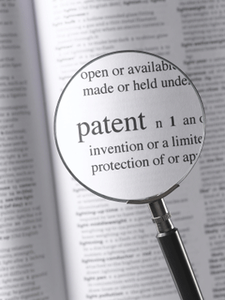According to reports, China is planning to increase patent protection on originator drugs to 25 years, increasing it by five years from the current patent protection period of 20 years. The country is also reportedly going to crack down on corruption and unfair competition in the pharmaceutical sector.
The move to increase the patent term to 25 years was announced during an executive meeting of China’s State Council and appears to be an attempt to strengthen the protection of intellectual property rights in the country. China has come under criticism lately from the US over intellectual property violations and has been subject to new US tariffs on Chinese goods.
Many other advanced economies, including Europe, Japan and the US, already grant up to five years additional protection to allow for delays in obtaining regulatory approval.
If the extension only applies to patents filed after the legislation is in force, this allows 20 years for businesses and consumers to adjust. However, some have criticised the move, saying that ‘China is already a difficult market, and the longer patent term would mean delays in marketing generics and more challenges to entry’.
China’s newly-established State Administration for Market Regulation (SAMR) [1] also announced in May 2018 the launch of a five-month nationwide campaign to crack down on unfair competition and commercial bribery in the pharmaceutical, medical device and educational sectors. The news follows the introduction of China’s revised Anti-Unfair Competition Law (AUCL), which came into effect on 1 January 2018. The revised AUCL prohibits individuals and entities from giving money or property to a business counterpart or public official or using other means to obtain a business opportunity or competitive advantage. Fines for commercial bribery under the AUCL range from RMB 100,000 to RMB 3,000,000 (approximately US$15,000–US$466,000). Failure to comply with the AUCL could also lead to an investigation by the US Department of Justice, the Securities and Exchange Commission or the UK’s Serious Fraud Office for violations of US or UK anti-bribery laws.
China has also recently introduced policies to reduce the cost of cancer drugs and boost generics. A new policy, that took effect on 1 May 2018, was introduced to exempt as many as 28 medicines, including all cancer drugs, made overseas from import duties [2]. Then the State Council, China’s cabinet, unveiled a new policy whereby some generics manufacturers could qualify for a ‘high-tech enterprise’ designation that comes with a 15% corporate tax rate, compared to the 25% rate for other companies [3].
Related articles
China cuts prices for three drugs by more than 50%
China follows the Thai and Indian route to affordable drugs
References
1. GaBI Online - Generics and Biosimilars Initiative. CFDA to come under national market supervision administration [www.gabionline.net]. Mol, Belgium: Pro Pharma Communications International; [cited 2018 Jul 6]. Available from: www.gabionline.net/Policies-Legislation/CFDA-to-come-under-national-market-supervision-administration
2. GaBI Online - Generics and Biosimilars Initiative. China to exempt cancer drugs from import taxes [www.gabionline.net]. Mol, Belgium: Pro Pharma Communications International; [cited 2018 Jul 6]. Available from: www.gabionline.net/Generics/General/China-to-exempt-cancer-drugs-from-import-taxes
3. GaBI Online - Generics and Biosimilars Initiative. China introduces new policy to boost generics [www.gabionline.net]. Mol, Belgium: Pro Pharma Communications International; [cited 2018 Jul 6]. Available from: www.gabionline.net/Policies-Legislation/China-introduces-new-policy-to-boost-generics
Permission granted to reproduce for personal and non-commercial use only. All other reproduction, copy or reprinting of all or part of any ‘Content’ found on this website is strictly prohibited without the prior consent of the publisher. Contact the publisher to obtain permission before redistributing.
Copyright – Unless otherwise stated all contents of this website are © 2018 Pro Pharma Communications International. All Rights Reserved.
Source: Allen & Overy, FirstWordPharma,IPPatents,Nikkei, Xinhuanet








 0
0











Post your comment